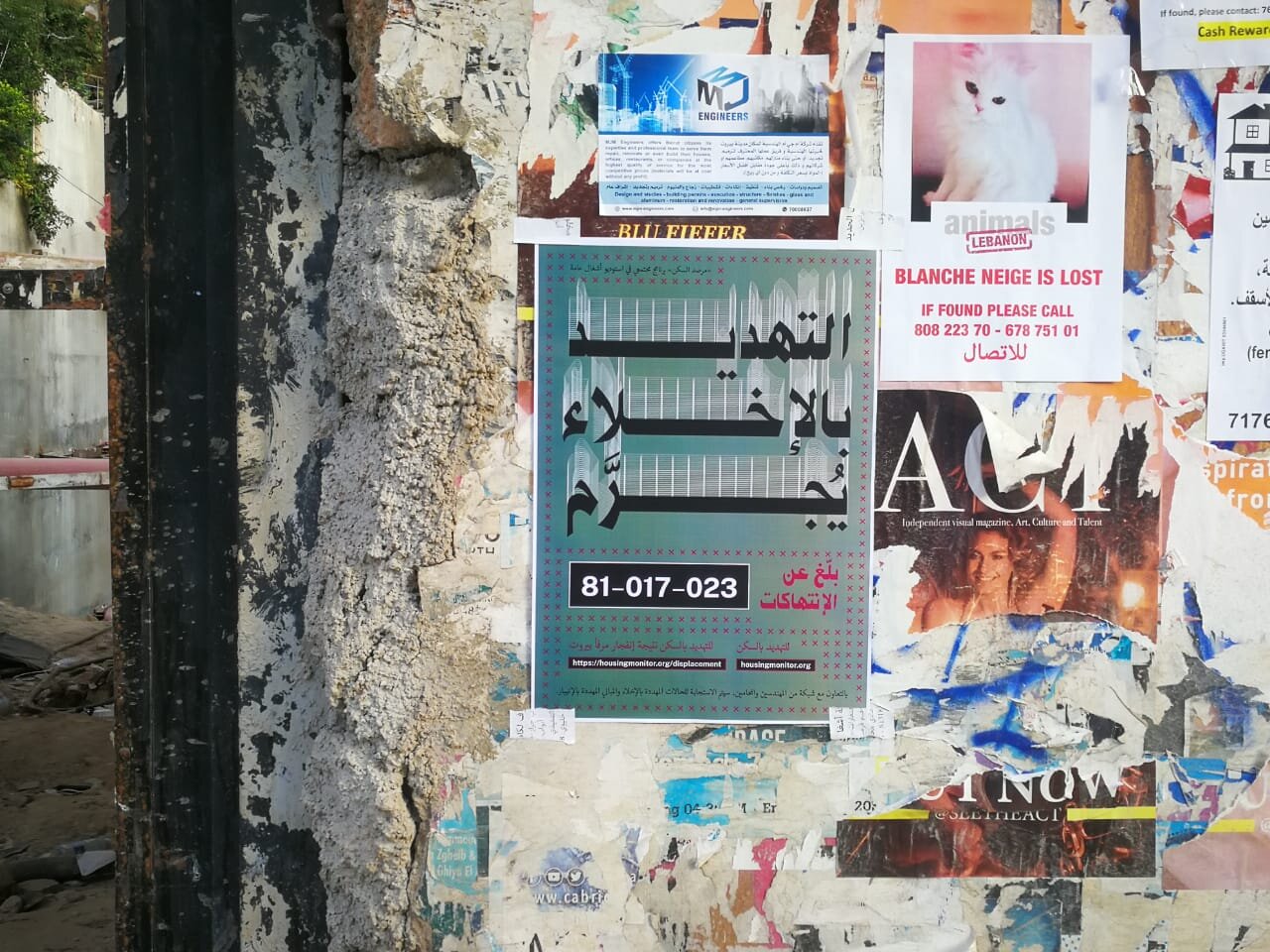THE VITAL CITY
How can we improve the quality of life for all in urban environments in Lebanon?
The Vital City explores the complex entanglements in space and time of displacements, crisis and city future focusing on the actual vitality of cities in Lebanon. It looks into infrastructure and services; infrastructure scarcity, overlapping claims over spaces and accesses to services in the context of a crisis laden, latent conflicts, and the actual complexity in the governance of local areas. This theme also takes into consideration the local context in which diverse communities, NGOs and individuals interact as agents in the reproduction of space, in order to understand how to make more resilient and better-quality living environments. More specifically, the Vital City will (A) Explore how displacement and its dynamics can work together to construct a public realm, with public goods and services that work for all, starting from the micro-daily scale of social engagement. This is in the hopes of helping to reduce emergent socio-spatial conflicts through urban design, and (B) examine how displacement can factor into the design of more resilient and better quality living environments in contexts of resource constraint in Lebanon.
Activities
Research leads
Professor Howayda Al-Harithy, MUPP/MUD, American University of Beirut
Co-Investigator
Howayda Al-Harithy is Professor of Architecture at the American University of Beirut in Lebanon. Her research in Islamic art and architecture focuses on the Mamluk period, and engages theoretical models of interpretation, particularly post-structuralist models, as analytic tools of the production of architectural and urban space. Her more recent research focuses on urban heritage with special emphasis on the theoretical debate on heritage construction and consumption related to identity building and post-war reconstruction. Her professional engagements have recently focused on two projects she is leading: the Urban Sustainable Development Strategy for Saida in Lebanon and the Central Area Plan for al-Madina al-Munawara in Saudi Arabia.
Professor Nick Tyler, Civil, Environmental and Geomatic Engineering, UCL
Co-Investigator
Professor Nick Tyler is Chadwick Professor of Civil Engineering at UCL. His work investigate the ways in which people interact with their immediate environments, for which he created the multisensorial Person-Activity-Environment Research Laboratory, which is part of the UK Government's CoLaboratorium for Research on Cities and Infrastructure. He set up the Accessibility Research Group within the UCL Centre for Transport Studies, which investigates accessibility and public transport.
Professor Camillo Boano, UCL Development Planning Unit
Co-Investigator
Professor Camillo Boano is an architect, urbanist and educator. He is Professor of Urban Design and Critical Theory with over 20 years of experience in research, design consultancies and development work in South America, Middle East, Eastern Europe and South East Asia. His research is centred on the encounters between critical theory, urban and architectural design processes and informal and contested urbanisms as well as the different spaces of humanitarian actions and post conflict interventions.
Dr Fouad M. Fouad, Health Sciences, American University of Beirut
Co-Investigator
Fouad M. Foaud, MD, is Assistant Research Professor at the Faculty of Health Sciences, and Co-Director of the Refugee Health Program, Global Health Initiative (GHI), American University of Beirut. His research focuses on refugees' health and the Syrian refugee crisis, including displacement inside Syria and the neighbouring countries. Dr Fouad currently serves as commissioner on two Lancet Commissions; AUB Lancet Commission: Syria and the crises in global governance, health and aid, and UCL-Lancet Commission on Migration and Health.
Dr Samar Maqusi, Civil, Environmental and Geomatic Engineering, UCL
Post-doctoral Research Associate
Samar is a post-doctoral researcher at the RELIEF centre, UCL. She is an architect and urban specialist with 11+ years of experience in international development, including urban design and development in conflict areas. In 2008, Samar moved to Jordan to work with the United Nations Relief and Works Agency for Palestine Refugees in the Near East (UNRWA) where she held the post of Architect/ Physical Planner, and oversaw the Shelter Rehabilitation programme. She obtained her PhD from the Bartlett School of Architecture, UCL. In her PhD, Samar investigated the production of space inside the Palestinian camp and the impact on political and spatial negotiations it has provided for the Palestinian refugees. She is involved in documentary film-making and has exhibited her photography in the US.
Dr Hanna Baumman, Institute for Global Prosperity, The Bartlett, UCL
Post-doctoral Research Associate
Hanna is working on topics closely related to the concerns of the RELIEF Centre, and in particular the Vital Cities strand: the British Academy-funded ‘Public Services and Vulnerability in the Lebanese Context of Mass Displacement’ (until July 2019) and her Leverhulme fellowship project ‘Urban dis/connections: infrastructures of refugee integration in Beirut and Berlin’ (until December 2021). Not directly employed by RELIEF, she is therefore nonetheless an affiliate member of the team. She holds a BA in History of the Middle East and Art History, a Master’s in Refugee Studies, and a PhD in Architecture. Her doctoral research was concerned with the politics of mobility and infrastructure in East Jerusalem. Outside of academia, she has worked for UN agencies and NGOs in the Middle East and South Asia.
Dr Harriet Allsopp, Independent Researcher
Research Collaborator
Harriet Allsopp is a freelance consultant and Middle East area specialist, with a particular focus on Syria and its neighbours. She holds an MPhil in Modern Middle Eastern Studies from the University of Oxford, and a PhD in Politics and MRes in Political Theory from Birkbeck College, the University of London. Her recent research has focused on social and political organisation around identity, representation and access to services. As well as tracking local responses to the Syrian uprising Harriet has looked in detail at the socio-economic foundations of political parties and at how identity, ideology and governance structures interact and shape local organisation. She is the author of the The Kurds of Syria: Political Parties and Identity in the Middle East (I. B. Tauris, 2014).
Ms. Joana Dabaj, Catalytic Action
Research Collaborator
Joana Dabaj is an architect and urban designer. She is co-founder and principal coordinator at CatalyticAction, a charity based in London that works to empower communities through strategic and innovative spatial interventions. She has valuable experience in architecture in development, sustainable design, cultural heritage, migration and human rights in the Middle East. Her recent work revolves around working closely with displaced and host communities in Lebanon to develop inclusive educational spaces; this includes participatory planning, design and implementation of playgrounds, public spaces and schools.



